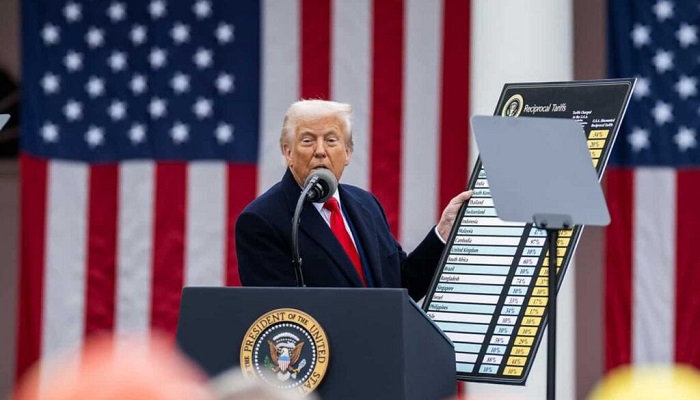PNN – US President Donald Trump is happy to talk about financial markets himself when they are rising, but when markets are falling after his significant policy shift on tariffs, he refers questions to his closest advisers.
According to the report of Pakistan News Network, CNN news network says: Trump’s economic advisers are preparing for instability after failing to control Trump’s tariff appetite.
This time it is the turn of Scott Besant, the billionaire US Treasury Secretary, to speak as Trump’s closest economic advisor; the one who was able to force the US President to back down and suspend tariffs on countries around the world except China for 90 days.
When a reporter asked Trump to comment on another day of stock market declines, the US president said to his Treasury Secretary: Scott, do you want to comment on that?
Scott Besant said with a short pause: Sure. A ratio of 2 to 1 isn’t bad – or 10 to 10 to 5 down.
Read more:
While cabinet members and the president watched at Thursday’s cabinet meeting, Basnet took control of the space, and finally, he arrived at a definitive message.
Accordingly, in the next three months in the White House, it will become clear who will influence Trump on trade policies.
Now, that includes Besant, who has been credited with convincing the president to pull back from the brink of economic disaster.
But others, including trade adviser Peter Navarro, continue to have influence over Trump, even if his hardline stance on Trump’s decision to back down seems to some to have eroded his popularity.
In a 48-minute speech on April 2, 2025, Trump announced a global “base” 10 percent tariff on all goods imported into the United States, on a day he called “Freedom Day.” He also imposed a 25 percent tariff on all foreign-made cars imported into the United States. The United States targeted some countries with much steeper tariffs of up to 50 percent.
A week later, on April 9, the US President announced: He will temporarily suspend the application of tariffs for 90 days, except for China, and reduce the reciprocal tariff to 10% during this period, which will be implemented immediately.

